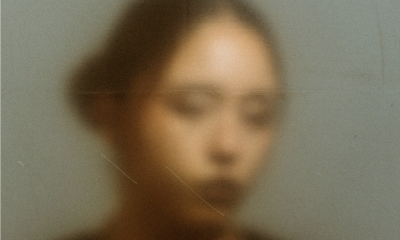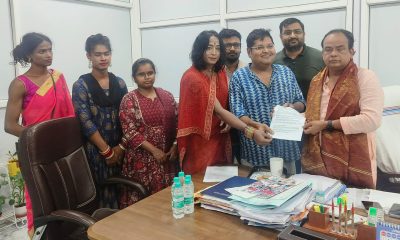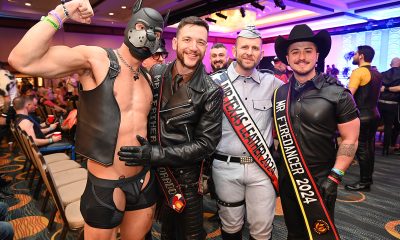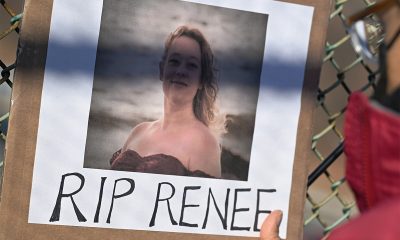India
Bollywood films increasingly explore LGBTQ, intersex issues
Actress Celina Jaitly has appeared in U.N. ‘Free and Equal’ campaign
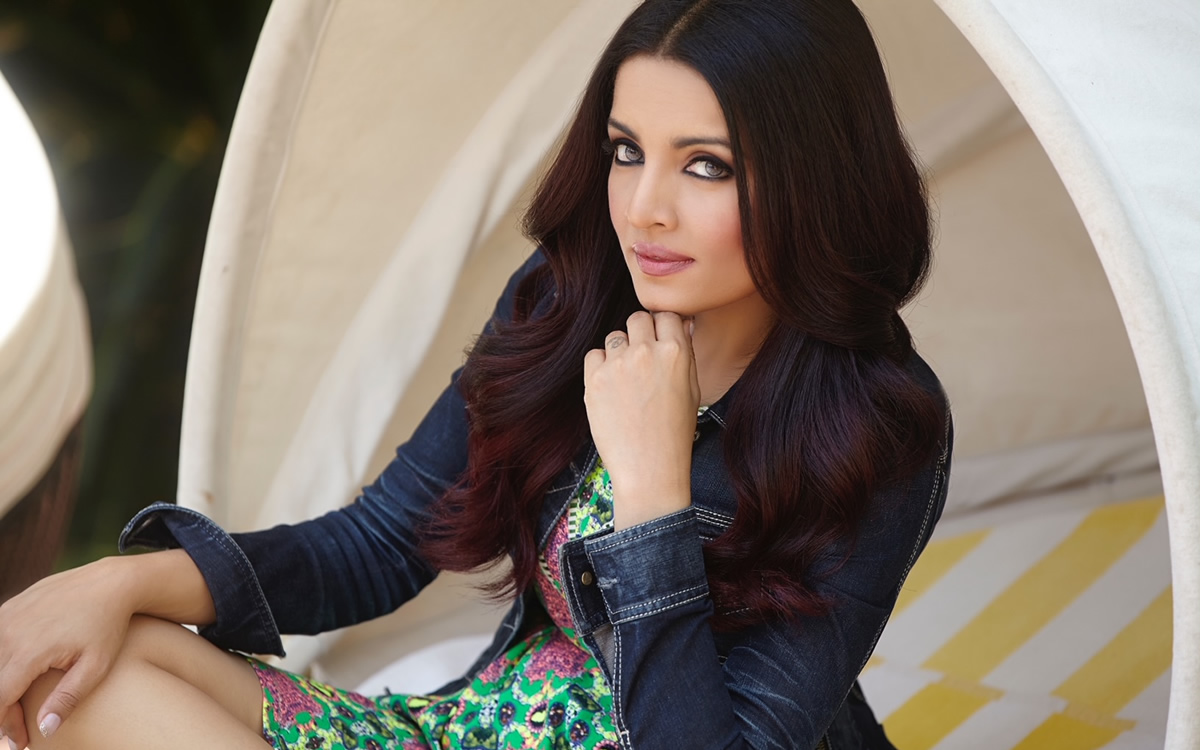
Music, dance, color, compelling stories and drama: Welcome to the world of the Indian film industry.
With the production of more than 1,500 films every year, the industry is the largest in the world. Movies like “Dangal,” a 2016 film about wresting, impacted Indian society’s views towards girls. In a country with limited awareness of Tourette’s syndrome, the 2018 film “Hichki,” which means “hiccup” in Hindi, successfully sensitized audiences.
But the Indian film industry before 2015 failed to highlight an integral part of Indian culture: The LGBTQ and intersex community.
The 1971 movie “Badnam Basti,” which means “Infamous Neighborhood” in Hindi was dubbed as India’s first gay film. The movie disappeared into oblivion soon after its release, and the 35 mm film print was only recently discovered in a Berlin archive. The Central Board of Film Certification, a film certification body under the Indian government’s control, in 1971 certified the film as A-rated, meaning for adults only. According to Hari Om Kapoor, the son of “Badnam Basti” director Prem Kapoor, the film never explicitly showed homosexuality but implied it through scenes.
When India was going through a tumultuous time in 2004, and the political landscape was changing, “Girl Friend” appeared on large screens.
Although it was not the first lesbian feature film, it portrayed a lesbian character as evil and stereotypical. The film explored a love triangle between two girls’ best friends and a man. One girl — Tanya, who played by one Bollywood’s biggest stars, Isha Koppikhar, soon realizes she is in love with her best friend, Sapna, who Amrita Arora plays. But Sapna is in love with a man, Rahul, played by Ashish Chaudhary. When Rahul realizes that Tanya is too close to Sapna, making him uncomfortable, he vindicates Tanya for the troubled relationship. The film then ends with the gruesome murder of Tanya by Rahul and Sapna, portraying Tanya and Rahul as heroes, and a lesbian character, Tanya, ends up becoming evil. This film received poor reviews from film critics.
“Indian cinema has played an important role in conditioning the mindsets of Indians of all backgrounds, and while the recent it has made great leaps in the types of cinema being attempted, most Hindi films still thrive on the offensive and stereotypical portrayal of the non-binary gender characters,” said Celina Jaitly, a former Miss India and one of the most popular Indian actresses.
Jaitly, through her performance in various big films, won millions of hearts in India and globally. Her activism in India for LGBTQ and intersex equal rights attracted the endorsement of the U.N. High Commissioner for Human Rights, which in 2013 made her an Equality Champion. Jaitly has supported the U.N. Free and Equal campaign to counter homophobia and transphobia.
“I have always wondered as an actor, why a gay or a trans person is constantly seen as outside the bounds of ‘normal.’ Ironically, despite the rampant transphobia, one particular trope is extremely popular in Bollywood, even after so many years, and that is cross-dressing men,” she told the Washington Blade. “Trans people are abnormal but cis men in drag are applauded. Every time a ‘hero’ dresses in drag it is considered to be iconic piece of performance, it’s always been difficult to wrap my head around that one. Casting trans and gay people in trans roles is still a challenge as cisgender actors consider it as a loss of opportunity to win awards, and producers/directors would rather cast cis actors who pull in an audience rather than a trans or a gay actor who pulls in the character.”
Jaitly, who have worked in the Indian film industry for more than a decade, appeared in “Seasons Greeting” last year in which a trans person is the lead actress.
Jaitly said she has fought for LGBTQ and intersex rights in India for years, and the reason for which she agreed to work in “Seasons Greeting” is that the director Ramkamal Mukherjee cast a trans woman for the first time in a trans lead film. Jaitly told the Blade that she believes in the importance of trans/gay cast in a trans/gay role, and only they can and should portray and become the beacons of reflections of the agonies and ecstasies of their journeys no matter what the script.
“Filmmakers hold supreme responsibility in being sensitive, empathetic, and rational while attempting to make films on the said theme,” said Jaitly. “And as complex, as it may seem, the underlying principles of treating people respectfully and equally is a no-brainer and requires no special education. Cinema like literature is the reflection of society and not only does it influence the society but has great impact on successive generations.”
In 2008, the star-studded romantic comedy film “Dostana,” which means “friendship” in Hindi, also attracted criticism and praise for depicting a gay couple.
Hollywood sensation Priyanka Chopra played a central role, with megastars like John Abraham and Abhishek Bachchan. The film explores the world of two men living in Miami who pretend to be a gay couple so they can live with a charming girl (Chopra), and they both eventually fall in love with her. Many critics argued that the film mocked LGBTQ and intersex people and making fun of the serious subject. But some critics also said that the presence of megastars like Chopra helps make audiences feel comfortable about the issue.
The Blade reached out to Chopra for a comment, but the actress did not respond.
With the advent of cheaper mobile data in India after 2015, more people are aware of LGBTQ and intersex people, and the Indian film industry is making LGBTQ and intersex-based films more than ever.
Maanvi Gagroo, a prominent Indian actress, in an email to the Blade said that there was hardly if any, LGBTQ and intersex representation in Bollywood for the longest time. And whatever little there was, was almost always comedic. Gagroo believes comedy can be a great tool for social change.
“it was always the manner or the nature of the humor that was problematic for me. Often the jokes were at the cost of the gay/queer characters, and audiences were meant to laugh AT them rather than WITH them. These characters never had any sort of redemption, no arc and often created and/or perpetuated outlandish, garish stereotypes!” said Gagroo. “There is hope though. I see makers becoming much more sensitive towards the community. And this change is parallel in society as well. I mean we only decriminalized homosexuality a few years ago. Now whether Bollywood is mirroring society or vice versa, I can’t comment but the change is positive for sure.”
Gagroo’s first LGBTQ and intersex film was “377 AbNormal,” is based on the Indian Supreme Court ruling in 2018 that decriminalized homosexuality. The film explored the five people who challenged Section 377, a colonial-era law that criminalized consensual same-sex sexual relations.
“‘377 AbNormal’ was actually very educational for me. While I pride myself as an ally, I was completely ignorant about the journey of the movement and what led to the monumental verdict of 2018. I knew I had to be a part of the film from the time I first heard the concept,” said Gagroo. “Again, that was another film where the director, Faruk Kabir, was extremely cautious of not only getting the film factually right but also portraying the entire process sensitively. We would often choke up and would have to stop shooting because all of us would get so emotional.”
“In terms of preparation, I didn’t need to work on sensitizing myself on the topic,” added Gagroo “I was there. I was ready to tell that story and I felt I had to do it well without minimizing anyone or anything related to the film.”
Although “377 AbNormal” was the first LGBTQ and intersex film for Gagroo, it was not the last.
Gagroo in 2020 appeared in “Subh Mangal Zyada Saavdhan,” a film that Hitesh Kewalya directed.
The film explores the story of a gay couple who have trouble convincing their parents to accept their relationship. The film generated a buzz at the box office. While talking about the film, Gagroo, who also starred in it alongside megastars like Ayushmann Khurrana, Jitendra Kumar, veteran actress Nina Gupta, and Gajraj Rao, said that the film came with empathy and a respect and that the intent of the film is clear.
“Our director, Hitesh Kewalya, was very clear right from the start, that he didn’t wish to delve into the gruesome hardships that the gay community is subjected to, but aim to normalize a lot of the conversation around it,” said Gagroo. “It dealt with so many different social issues even beyond LGBTQ. Even while shooting you could see the cast and crew evolving and their growing comfort with the topic was palpable.”
While talking with Blade, Kewalya said that things changed, and people became more aware of the issue, which led to the making of “Subh Mangal Zyada Saavdhan.” He argued the Section 377’s abolition made it possible to make such films. Kewalya also noted that Indian society was already talking about the issue, so making such a film became easy.
“It was challenging because there was no precedent to it. In a commercial film like this, where a top star is headlining the film, and a top production house is backing it, and all the great actors backing it,” said Kewalya. “It was also challenging because it is a sensitive topic in our society. Even the LGBTQ community was never happy with the kind of representation that was happening in the cinema.”
According to Variety, India produces films in staggering 41 languages, mostly regional. In 2017, Lokesh Kumar released “My Son is Gay,” a Tamil language film. The story revolves around a school principal and her only son. The mother-son duo shares a strong bond, and the mother soon finds out the hard truth that her only son is gay, which leads to a drastic change in her life.
“I am glad many people supported and showered a lotta love for our little indie feature film ‘My Son is Gay.’ I have attended an LGBTQ film festival once, where I have seen many queer films across the world and also got to meet many community members. That’s when I realized there are only very few Tamil films which showcased queer characters and there are no full-length gay-themed films as such,” said Kumar. “I really felt the need to tell the stories like ‘My Son is Gay.’ So, I have decided to meet LGBTQ members and their parents and did my research, wrote the story which is based on many real incidents. It wasn’t an easy journey at all, as there were very less support from people around me considering the theme of the film. Many actors and technicians were hesitant to involve. There weren’t many producers who wanted to back this project. However, producer Anil Saxena, an Indian citizen who lives abroad, Cyril D’souza and actor Anupama Kumar understood the importance of this story and they backed me. Finding the right cast and making the cast, crew understands the importance of such stories and making them confident and comfortable to play the characters was really a challenge. Am glad I didn’t give up.”
While LGBTQ and intersex films are doing well in India and globally, in 2022, another film, Junglee Pictures’ “Badhaai Do,” generated a buzz among the masses. Star-studded films with casts like Rajkummar Rao, actress Bhumi Pednekar, Sheeba Chaddha and Chuma Darang helped the film highlight the LGBTQ and intersex issues in India. The film tells the story of a gay cop who enters into a sham marriage with a lesbian teacher to convince their family that they are living a normal life.
“The films that came before us had already placed the LGBTQIA+ issues and concerns in the mainstream space. Not having the burden of explaining an ‘issue’ was liberating for us as we could focus on aspects of representation while negotiating with our own heteronormative conditioning without worrying about having articulate and politically correct sounding characters,” said “Badhaai Do” director Harshavardhan Kulkarni. “It helped us locate the film in familiar realities of caste, class, and patriarchal family units. I feel that too often, we tend to gloss over the fact that sexuality is only one aspect of our being, and it exists within the many other aspects which govern daily life in large parts of our country. I feel that we need to do more to understand and educate ourselves about this. Until we do that, our understanding of the real-world problems faced by the LGBTQIA+ community will remain limited.”
In recent years, the Indian film industry has released some critical films that show real-world issues of the Indian LGBTQ and intersex community. Films like “Badhaai Do,” “Subh Mangal Zyada Saavdhan” and many more have not only created an impact on Indian society but also started the discussion.
Samantha Ruth Prabhu, an Indian film star who won millions of hearts across India and numerous awards for her contribution to Indian cinema, told the Blade that Indian movies and the film industry are constantly evolving.
“I do believe we have a long way to go before mainstream films refrain from crudity, insensitive humor and homophobia completely,” said Prabhu. “I am extremely proud of having been a part of a path breaking and ambitious film like ‘Super Deluxe.’ The film tied many intricate stories to an overarching philosophy, so I wouldn’t say it was only about a transgender person. The characters portrayed by me and Mr. Vijay Sethupathy (an actor who appeared in ‘Super Deluxe’ with Prabhu) were similar in that they both exhibited their own brand of bravery.”
Prabhu has joined the cast for her next LGBTQ and intersex film, Arrangements of Love. Wales-based BAFTA-winning director Philip John is also joining the team as director. The film will revolve around an Indian man in Wales who visits his homeland to find his estranged father. Prabhu will be playing a bisexual detective who becomes part of the search.
“The industry is evolving-slowly but surely. There was a time when people were forced to tuck away a very real part of themselves in the way they told their stories, in a bid to conform. That thankfully has changed,” said Prabhu. “Directors and scriptwriters are being more real, and the audience is here and ready for it!”
Ankush Kumar (Mohit) is a freelance reporter who has covered many stories for Washington and Los Angeles Blades from Iran, India and Singapore. He recently reported for the Daily Beast. He can be reached at [email protected]. He is on Twitter at @mohitkopinion.

India
Few transgender people benefit from India’s low-income housing program
Pradhan Mantri Awas Yojana launched in 2015

The Indian government on Dec. 15 informed parliament that only one transgender person in Jammu and Kashmir has been recorded as a beneficiary under the Pradhan Mantri Awas Yojana since the housing program was launched a decade ago.
PMAY is a federal government program aimed at expanding access to affordable housing for low- and middle-income households, including through credit-linked subsidies. The parliamentary disclosure indicates that trans beneficiaries have been virtually absent from the program’s records in the union territory, despite official guidelines listing trans people as a priority category.
In a written reply to a question in the upper house of parliament, known as the Rajya Sabha, the Housing and Urban Affairs Ministry said Jammu and Kashmir recorded zero trans beneficiaries under the program in each financial year from 2020–2021 through 2025–2026, with the cumulative total since inception remaining at one.
The Indian government launched the program on June 25, 2015, and the Housing and Urban Affairs Ministry implemented it.
The parliamentary reply came in response to a question on whether trans people are being included under the housing scheme and what steps have been taken to address barriers to access. The ministry said both PMAY and its successor, PMAY 2.0, are demand-driven programs, with responsibility for identifying and selecting beneficiaries resting with state and regional governments.
The ministry said the program lists trans people as a priority group, alongside widows, single women, people with disabilities, senior citizens, and other socially disadvantaged categories. It added that actual implementation depends on housing proposals and beneficiary lists submitted by state and regional governments.
According to figures the Indian government cited, a total of 809 trans beneficiaries have been recorded under PMAY and its successor, PMAY 2.0, since the programs were launched, with the vast majority concentrated in a small number of states. The southern state of Tamil Nadu accounts for 222 beneficiaries, followed by Andhra Pradesh with 186, and Odisha with 101. By contrast, several other states and federally administered regions, including Jammu and Kashmir, have reported either negligible or no coverage. India is administratively divided into 28 states and eight federally governed territories.
According to India’s 2011 national Census, Jammu and Kashmir recorded 4,137 trans residents. The same census counted 487,803 trans people nationwide, providing the most recent official population baseline for the community in India.
The ministry also said it has not conducted a specific survey to assess barriers faced by trans communities in accessing the scheme’s benefits. Instead, it said lessons from earlier implementation phases informed the design of the second phase of the program, launched on Sept. 1, 2024, which aims to support an additional 10 million urban beneficiaries over the next five years.
The parliamentary reply reveals an even more severe gap in Ladakh, India’s northernmost federally governed territory bordering China and Pakistan-administered areas and considered strategically critical to national security.
Official records show that Ladakh has not reported a single trans beneficiary under the housing scheme, either in recent years or cumulatively since the program began, with zero coverage recorded across all financial years listed in the Annexure. By comparison, Ladakh’s trans population stands at six, according to a written submission made to the High Court of Jammu and Kashmir in 2024.
Despite trans people being listed as a priority group in the scheme’s guidelines, the federal government said that as of November 2025 it had sanctioned more than 12.2 million homes nationwide under both versions of the program, with over 9.6 million homes completed and delivered. At the same time, data from Jammu and Kashmir, Ladakh, and several other regions show little to no recorded housing uptake by trans beneficiaries.
Speaking with the Washington Blade, Meera Parida, a trans activist, former member of the National Council for Transgender Persons in India’s eastern zone, and a former state advisor under the housing and urban development department, said the 2011 Census does not reflect the full size of India’s trans population, noting that public recognition and self-identification were far more limited at the time. She pointed to later government data collection efforts, including the National Portal for Transgender Persons that the Social Justice and Empowerment Ministry launched in 2020, as evidence that official counts have expanded beyond what was captured in the last Census.
“I am surprised that around the country only over 800 people benefited from the scheme, because most of the transgender population is from socially backward classes,” said Parida. “So they do not have a house and no family. Five years have passed since the NALSA judgment and the Transgender Protection Act; even after all these, if only over 800 transgender persons got home, that is a sad situation.”
Parida said that Prime Minister Narendra Modi has publicly positioned trans people’s welfare as a priority, but argued that the issue requires greater attention at the administrative level. She said the prime minister’s office should issue clear directions to all relevant departments to ensure trans people receive housing support and that implementation moves more quickly.
“There is still widespread discrimination and stigma against the community. Many transgender people are afraid to speak openly, which is why this issue continues to persist,” Parida said. “If stigma and discrimination are not addressed seriously, the marginalized community will remain invisible and reluctant to come forward. In that situation, the government will also be limited in what it can do. State governments should work with activists and community organizations to build accurate data. The government has decided to resume the Census in 2026, but the enumerators who go door to door must be sensitized to engage respectfully with the transgender community. The government should also improve awareness of housing schemes, because many people simply do not know they exist. A single-window system is needed.”
India
India’s Jharkhand state works to improve trans people’s access to health care
People for Change working with local officials to address disparities
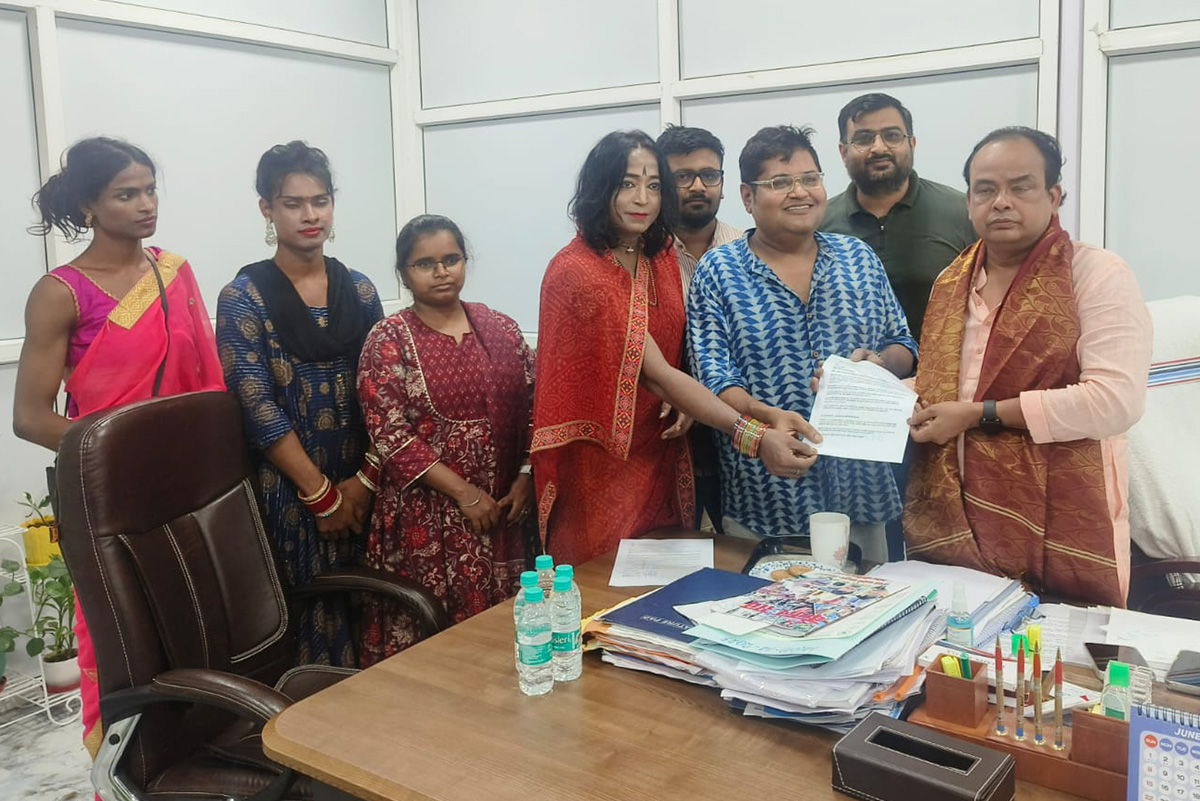
The transgender community has been part of India’s social fabric for centuries, but decades of policy neglect pushed many into poverty and inadequate health care.
The Supreme Court formally recognized trans people as a third gender in 2014, yet state-level services developed slowly. Telangana opened India’s first dedicated trans clinic, the Mitr Clinic, in 2021 with support from the U.S. Agency for International Development and Johns Hopkins University. Jharkhand State has now ordered all government hospitals and medical colleges to establish dedicated outpatient units for transgender patients.
People for Change, an LGBTQ organization, spent the past year mapping gaps in trans health care across Jharkhand. Its surveys of 100 trans residents in five districts found limited access to gender-affirming care, hormone therapy, dermatology, and mental-health services. The group followed this survey with a May 2025 consultation in Jamshedpur, an industrial town in Jharkhand, that brought together clinicians and community leaders to outline a feasible outpatient model.
Those findings were presented to Health Minister Irfan Ansari in June, backed by input from allied organizations and more than 50 trans leaders. The process helped inform the state’s decision to introduce dedicated trans outpatient departments in all government hospitals and medical colleges.
People for Change, which played a central role in shaping the policy, noted that government hospitals in Jharkhand still face infrastructure and resource gaps. Even so, the group said the order reflects a clear policy commitment to creating dedicated trans health services.
If Jharkhand’s trans outpatient departments system functions as planned, it could become a regional model for states with comparable gaps in public health access.
Government data from the 2011 Census — the latest official count to identify an “other” gender category — lists 13,463 trans residents in Jharkhand, alongside sizable populations in neighboring states: 40,827 in Bihar, 30,349 in West Bengal, 22,364 in Odisha, 18,489 in Chhattisgarh, and 137,465 in Uttar Pradesh. Though likely underreported, these figures underscore the scale of need across eastern and central India.
“The decision to start dedicated transgender OPDs (outpatient departments) is not just an administrative step — it is a statement of inclusion, a recognition that the transgender community deserves discrimination-free, dignified, and responsive healthcare. When the government takes such a deliberate step, it sets a tone for systemic change,” said Souvik Saha, founder of People for Change. “It creates an official entry point for transgender healthcare.”
“For the first time, transgender persons will have a recognized and respectful space within the public health system,” added Saha. “That itself is a major shift. It signals to doctors, nurses, and administrators that transgender health is a priority. This leads to sensitization, accountability, and the gradual improvement of attitudes within hospitals.”
Saha told the Washington Blade the policy is likely to trigger broader improvements, noting that once a service is formally notified, budget allocations, training, infrastructure, and staffing typically follow. He said the move could strengthen the system gradually, “step by step.”
“We are realistic: we know improvements won’t happen overnight. But we are also optimistic because the state has already shown genuine leadership and empathy by issuing this order,” said Saha. “And since Jharkhand is celebrating its 25th year of formation, this decision reflects the state’s intention to move towards greater equality and social justice.”
“For the transgender community, this is not just a service — it is dignity. It is visibility. It is inclusion,” he added. “And with the government, civil society, and community working together, we believe this will lead to meaningful and lasting change in the years ahead.”
Saha told the Blade that the dedicated transgender outpatient will operate within existing government medical colleges and hospitals in Jharkhand and will be staffed by current medical and paramedical teams, with no separate funding required at this stage. He said the policy does not call for separate wards or beds, but for clearly designated outpatient spaces for trans patients. The service, he added, will be run by existing staff who will receive training and orientation as needed.
“At this moment, the specific operational details are still being discussed with the government of Jharkhand. However, what is clear is: the OPD will function as a dedicated space within the hospital, not limited to a specific day,” said Saha. “Transgender individuals will have access to focused, discrimination-free services through this dedicated space. The clinic will run through existing hospital systems, with linkages to psychiatry, dermatology, endocrinology, and other departments when required.”
“This structure allows the government to start services immediately without needing new construction, new staff positions, or separate budget lines,” he added. “It is a practical and efficient first step, making the service accessible while keeping the doors open for: future budget allocations, specialized staffing, expansions into gender-affirming services, and strengthened infrastructure. The government’s intent is very clear: to ensure dignified, equitable, and discrimination-free healthcare for the transgender community. This order is a strong beginning, and operational details will continue to evolve through collaborative discussions between the government, hospitals, and People for Change.”
Saha acknowledged that taboos, misinformation, and stereotypes about the trans community persist in Jharkhand and in many other states. However, Saha said there are encouraging models at which to look.
He pointed to Kerala and Chhattisgarh, which have introduced sensitization programs and begun integrating trans-inclusive practices into their public health systems. These examples, he noted, show that when health departments invest in training and awareness, attitudes shift and services become more respectful and accessible.
“In Jharkhand, People for Change has proposed a similar approach. We have formally recommended to the government that civil surgeons, chief medical officer, doctors, nurses, and other hospital staff be trained on gender sensitization and transgender health challenges. This includes understanding gender identity, psychological needs, respectful communication, medical protocols, and ways to ensure discrimination-free services,” said Saha. “The encouraging part is that these proposals are already being discussed in detail with the government of Jharkhand. The government has shown strong intent through the issuance of the transgender OPD order, and training health professionals is naturally the next crucial step.”
Saha noted that it remains unclear whether trans people will be recruited into government health roles, saying it is too early to make any definitive statement. He explained that recruitment requires separate processes, policies, and approvals, and the current order does not address new staffing or the creation of government positions.
A recent performance audit by the Comptroller and Auditor General of India, the constitutional authority responsible for auditing government spending and administration, outlined severe human-resource and medicine shortages across Jharkhand’s public health system.
Tabled in the state assembly in February, the report found that about 61 percent of sanctioned posts for medical officers and specialists were vacant, along with more than half of all staff-nurse positions and roughly four-fifths of paramedic posts. The audit also documented acute shortages of essential drugs in the hospitals it reviewed, with stock gaps ranging from 65 to 95 percent during the 2020-2022 period. The findings highlight the systemic constraints that the new trans outpatients will have to navigate.
Saha acknowledged that drug shortages remain a serious issue in government hospitals and said the concern is valid. Even so, he added that he is approaching the new outpatient policy with hope and confidence.
“The government of Jharkhand has made a historic and intentional decision by opening dedicated transgender OPDs,” said Saha. “When a government takes such a strong step of recognition and inclusion, it also shows the readiness to understand the specific health challenges and medication needs of the transgender community.”
“As more transgender persons start coming to the OPDs and their health requirements become clearer through proper documentation and reporting, we are confident that the state will make every effort to ensure that essential medicines are available for them,” he added.
Saha said People for Change is also seeking support outside the public system. The organization has begun briefing civic service groups — including Lions Club, Rotary Club and Inner Wheel, international volunteer organizations that run local welfare and health projects — on the outpatient order and the community’s needs. According to Saha, several of these groups have indicated they may help trans patients with medicines and other essentials when prescribed by a doctor.
“So the effort is two-fold: the government is creating an inclusive health system and will be informed of the community’s specific medicinal needs through the OPDs. People for Change and partners are strengthening the safety net to ensure that transgender persons are never left unsupported,” said Saha. “We truly believe that this collaborative approach will ensure that transgender individuals receive the medication and care they deserve — with dignity, consistency, and compassion.”
“Every hospital may take a slightly different amount of time depending on internal readiness, but overall: The foundational work is already underway, Hospitals have started preparing their designated OPD spaces, And coordination is happening at the level of civil surgeons, medical superintendents, and hospital management teams,” he added.

A same-sex couple on Aug. 14 petitioned the Bombay High Court to consider their challenge of provisions of India’s Income Tax Act that only exempt gifts between heterosexual spouses from taxation.
Section 56(2)(x) of the Income Tax Act states any money, property, or asset received without adequate consideration that exceeds 50,000 rupees ($570.96) is taxed as “income from other sources.”
An exception in the fifth provision exempts such gifts when received from “relatives,” a category that includes “spouses.” The law, however, does not provide a separate definition of the term “spouse.”
The petitioners have asked the court to declare the use of the term “spouse” in Section 56(2)(x) unconstitutional, arguing its application effectively excludes same-sex couples from the exemption.
The Bombay High Court has issued notice to the attorney general of India, the country’s top law officer, on the petition.
The petitioners, represented by lawyers Dhruv Janssen-Sanghavi, Tejas Popat, Vishesh Malviya, Amandeep Mehta, and Aanchal Maheshwari, argue that denying them the exemption available to heterosexual spouses amounts to discrimination.
“While not entering into the merits at this stage,” observed Justices BP Colabawalla and Firdosh P. Pooniwalla on Aug. 14. “Since the constitutional validity is challenged, we issue notice to the attorney general of India returnable on Sept. 18, 2025. We also direct the registry to issue notice to Respondent No. 2, returnable on Sept. 18, 2025.”
The petitioners told the court that the current framework violates their fundamental rights under Articles 14, 15, and 21 of the Indian constitution, which guarantee equality under the law, prohibit discrimination on grounds including sex, and protect the right to life and personal liberty.
“The Writ Petition is filed to declare and hold that the term ‘spouse’ appearing in the explanation to the fifth proviso to Section 56(2)(x) an unconstitutional inasmuch as it excludes the Petitioners from the scope and definition of the term ‘spouse.'” said the judges. “The declaration is also sought to extend the benefit of the fifth proviso to Section 56(2)(x) of the IT Act to the petitioners who are in a long-term, stable same-sex relationship.”
The judges, as an alternative noted the petition seeks an interpretation of the term “spouse” in Section 56(2)(x) that would extend the exemption to same-sex couples, whom the petitioners argue are in the same position as heterosexual couples presumed to be in a marriage.
The case is scheduled for hearing on Sept. 18, when the attorney general and the Indian government are expected to file their responses.
“Johar judgment of Sept. 6, 2018 gave us the right to love without fear,” said Harish Iyer, a prominent LGBTQ activist in India. “But what good is love if Lady Justice stays blindfolded to our families of choice — beyond gender boxes, beyond marriage certificates.”
Speaking to the Washington Blade, Iyer said the community’s legal journey has been a lifeline rather than a mere timeline, citing milestones such as the Naz Foundation ruling on decriminalization, the NALSA judgment on transgender rights, the Supreme Court’s decision in Navtej Singh Johar, and the affirmation in Puttaswamy that privacy is intrinsic to dignity.
He stressed each ruling represented a moment of recognition and argued that rights for queer people are not passively granted but continuously upheld in courtrooms, newsrooms, boardrooms, and ballot boxes, requiring constant defense.
“Our fight for our rights is our lifelong resistance,” said Iyer. “Rights are not a given, they are a continuous defense — against erasure, against silence, against the comfort of forgetting. The Puttaswamy judgment reminded us that privacy is not a privilege, but a constitutional promise; and in that promise lives the freedom to love, to live, and to be.”
In response to a question about the impact on the community, Iyer told the Blade the struggle remains exhausting, with constant pressure weighing on both mental health and financial stability. At the same time, he noted a shift, with more voices speaking up and more people joining the fight. Iyer emphasized the Pride flag has been firmly raised and will not be lowered, underscoring the community’s resolve not to back down.
The Supreme Court, in its 2023 ruling that declined to extend marriage rights to same-sex couples, urged the government to create a committee to examine what measures could be taken to extend economic benefits currently available only to heterosexual couples. The court recommended the panel consider access to entitlements — joint bank accounts, pensions, succession rights, and health insurance — so queer couples are not excluded solely because their relationships lack legal recognition.
Ankit Bhupatani, a global DEI leader and LGBTQ activist, said the petition before the Bombay High Court is not only about taxation; but also about dignity, equality, and the need to dismantle systemic discrimination. He noted that this represents precisely the kind of legislative gap the Supreme Court had pointed out during the marriage equality hearing — heterosexual couples are protected while queer couples remain vulnerable.
“This reflects the gap between constitutional morality and statutory reforms. While the Supreme Court in Navtej Johar (2018) declared that LGBTQ persons are equal citizens, and in the marriage equality case acknowledged our hardships, the implementation of those declarations depends on proactive steps by the legislature and the executive. Unfortunately, successive governments have failed to do this work,” said Bhupatani. “It is unfair and exhausting for the community to repeatedly prove our humanity in courts just to access basic rights that heterosexual couples take for granted. Equality cannot be piecemeal; it must be comprehensive.”
Bhupatani further said that the impact is two-fold: emotional and material.
On the one hand, such discriminatory laws send a message that same-sex love is “less than,” that same-sex relationships are legally invisible. This, he said, takes a toll on mental health and reinforces stigma in society. On the other hand, the financial burden is very real, as many queer couples face unfair taxation, denial of joint benefits, and lack of recognition in matters of property, pensions, and inheritance.
“These are not abstract issues, they affect whether couples can plan their future together, buy a home, or provide for one another in old age,” said Bhupatani. “When the law penalizes queer families, it perpetuates inequality and economic hardship. This case, therefore, is not just about taxes, it is about affirming that queer Indians deserve the same dignity, rights, and protections as anyone else under the constitution.”


